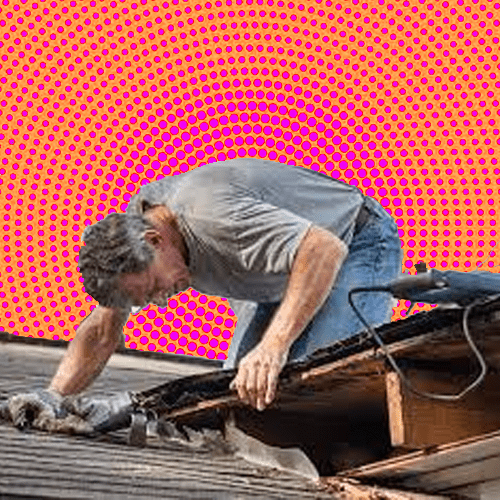I cant Sell My Home
Facebook
Twitter
LinkedIn
Email
The Top 10 Things to Do When Your Listing Expires
Introduction
In the realm of real estate, there exists a phenomenon that agents and homeowners often encounter but seldom discuss openly—the expiration of a listing. It’s the moment when a property, once bathed in the spotlight of eager buyers and hopeful dreams, fades into the background, unseen and forgotten. But what if we looked at this not as an end but as a beginning for something new and transformative?
In this unconventional guide, we explore the top 10 things to do when your listing expires. It’s a journey that takes us beyond the traditional boundaries of real estate, where creativity and reinvention become the driving forces. So, whether you’re a seasoned agent or a homeowner facing the expiration of your listing, prepare to embark on an uncharted path where the unexpected awaits and every perception gets questioned.
1. Reviewing Performance
In selling real estate, success isn’t just about closing deals; it’s about constantly evolving and adapting to the ever-shifting landscape of the market. So, when your listing reaches its expiration date, it’s time to peel back the layers and dissect its performance.
Reviewing performance isn’t merely about numbers; it’s about diving deep into the soul of your listing, extracting insights, and uncovering the hidden narratives that lie beneath the surface. It’s about asking the tough questions, challenging assumptions, and finding the silver linings within every expired listing. A great starting point is Activity Levels, so let’s dive in.

2. Review Activity Levels
Did your Open House have a line to get in like CBGB in the 80’s? Did you find yourself dodging tumbleweeds as the high lonesome sounds of silence filled your home? Activity levels are a good barometer for the two most important components to selling your home: Asking Price and Exposure.
If you found your activity levels to be on the latter end of the above scenarios, you may consider the fact that it was priced incorrectly. When price is too high, traffic will be very low to non-existent. A few ways to spot check price would be:
Review the CMAs given to you by all of the agents you interviewed to see how they average, as well asking the tsunami surge of new agents now knocking down your door
Review home sales in your immediate area (within 0.7m) that are similar to yours in both size, condition, and bedroom/ bathroom count and see if they point toward a specific value.
 3. Consider Condition
3. Consider Condition
As you are reviewing pricing, the condition of your home and property should be considered. On the range of tear-down to turn-key, where did you price the property? Yes, the 3-bedroom home down the street sold for $950k, and yes it’s the same size as yours, but the house down the street was completely renovated prior to selling and your interior looks like the set of Full House. If you priced too ambitious vs your home’s condition, this could be why so many buyers came and went without any offers.
Now, after reviewing the above, if there are still no holes poked in the pricing, then the next thing to reconcile is Exposure. How was your property “exposed” to the public? Was it simply put on MLS by your agent and forgotten about? Was there a clear marketing strategy? How many impressions/ views/ etc did that equate to? And most importantly, was there a plan about who it should be exposed to the maximize the chances of selling the home?
If you can’t answer these questions, this could be the problem.
4. Review Marketing
The way a home is exposed is usually the most critical component of not only selling the home, but selling it for the highest and best price. There should be a clear strategy in place in the beginning, followed by clear tactics that support the overall strategy. If you didn’t have a strategy in place, or didn’t know the strategy, you should review with your agent to get answers to those questions. If they don’t have clear answers, you should find a different agent.
5. Review Content
Content walks hand-in-hand with “marketing”. The pictures, video, and copy used to sell your home tell a collective story to prospective buyers. Some sell the dream, others biff. If your videos are trash or your photography is bad, you can bet that the buyer who should have purchased your home walked right past your listing online. The fact is, it takes a buyer less than 4 seconds on average to decide if they should click on a property listing. They quickly judge the book, your home, by its cover, your photography.
Review your photography and video in comparison to other properties for sale near you. This will give you an idea of the quality of your content versus others. If your content was captured on a iPhone, if the focal points were toilet bowls and towel hangers, or if the lighting resembles the fluorescent haze of a county hospital hallway at midnight then you may have found a weak link in the marketing strategy.
6. Consider Buyer Feedback
Now maybe you had a good amount of activity through the door, but no offers. To truly understand why a property didn’t find its match, one must delve deep into the voices of those who ventured through its doors. This feedback isn’t just constructive criticism; it’s a treasure trove of insights, shedding light on the hidden facets that perhaps only an outsider could perceive. So, don’t shy away from the unfiltered words of prospective buyers; instead, embrace them as the keys to unlocking the secrets of your expired listing’s destiny.
See, the inquiries and intel that should have been diligently collected during showings are the keys to unlocking the riddle: “What ails this dwelling? What transformations would kindle the spark of buyer desire?” When these queries yield a chorus of shared concerns, a smart seller should take note and make the necessary changes.
For instance, if most buyers said the home is too dark and asked for a candle during their tour, then you can add lighting, declutter, clean the windows, etc. If multiple buyers are having trouble envisioning where to hang a TV or how to configure the bedroom, you could have the home professionally staged.
We had a client with counters that were in bad shape. Buyers continuously commented on it. She contacted her preferred contractors to quote a new quartz slab, and it was less than $2000. Not only did it solve the issue, but it increased the final sale price by adding value.
Of course, there are some things that just can’t be changed; like clogged parking on your street or a light pole obstructing a view. In these cases, price correction is the cure.

7. Reconsider Strategy
As Michael Porter said, the essence of strategy is choosing what not to do. Consider this, are you simply selling to the wrong type of buyer? Are you selling to buyers who want turn-key, but your mauve carpet and 90’s bathroom décor isn’t cutting it?
An illustrated example: your beloved home, standing weathered by time and longing for a fresh start. The roof, once steadfast, now shows its age; construction materials whisper tales of asbestos, demanding your attention. And that basement, touched by errant water droplets, harbors a secret plea for restoration, one you can’t heed with your current savings.
Or perhaps life’s currents have thrust you into a whirlwind, where urgency is everything. You need swiftness of action, be it to secure extra cash or to navigate a loved one’s health crisis. But alas, the gears of progress seem mired in mud, moving at a pace that fails to match your fervor.
In times like these, the off-market path beckons, a mysterious glimmer of hope for those in need of a swift and pragmatic solution.
So, what’s the game-changer, the key to transforming this predicament into an opportunity? Consider selling to a real estate investor, a house-buying company, or an “flipper”—the champions of expediency and convenience. These direct buyers often deal in the currency of cash, bypassing the slower routes of financing.
Many buyers, it seems, have become sticklers for perfection, prioritizing move-in readiness above all else. According to a survey by NAR, a staggering 80% of Americans want a home that requires no renovations. Millennials and Gen Xers, ever the vanguards of change, willingly trade size for the allure of a move-in ready haven.
The point is, taking a long hard look at your home and who it really appeals to is critical to ensure that the buyers you are showing the property to are the ones who will actually make a move on it. To learn more about targeted marketing to buyers, click here.
8. Consider the Competition
Goose and Maverick were smart. Through sweaty sun-bleached beach volleyball and beer-soaked karaoke in their whites, they became familiar with who their competition was, and why. A really helpful way to gain perspective as a seller is to meet your competition through the buyer’s lens. Look up all of the homes currently for sale within a mile of your property that are similar in size, bedroom count, and price to yours. Then go tour them! Remember, buyers aren’t just coming to see your property. They are out touring many listings so they can compare them against each other and find what works best for them.
As you tour other properties, you may notice things that other sellers are doing to entice buyers. Did they repaint their front door with a new trendy color? Did they decide to stage the property instead of just using their own furniture? How is the curb appeal of the competition versus your property? Have other sellers down a bit of landscaping? Most top real estate agents across the country agree that well-landscaped homes are worth anywhere from 1%-10% more. These same agents say boosting curb appeal is often the most effective action you can take to improve the marketability of your home.
It’s hard to believe paint, pressure washing, and petunias can translate into thousands of dollars, but numbers don’t lie.
9. Evaluate Market Conditions
To navigate the turbulent waters of the real estate market, you must decipher its enigmatic rhythms. Market conditions, those ever-shifting tides, can make or break your home-selling journey. Are you swimming in a seller’s paradise, where bidding wars reign supreme, or are you sailing through the treacherous waters of a buyer’s domain? Understanding these conditions, their nuances and caprices, is your compass to success. It’s a tale of supply and demand, where homes become pawns in the grand real estate chessboard. Be vigilant, for market conditions are the siren songs that beckon you to chart your course wisely, in this dance between the channel waters of success and the rocky cliffs of failure.
Understanding what type of market you’re in will help with choosing the right pricing strategies. Evaluating the area competition will also be beneficial to knowing how to time coming back to market. If there are 10 houses for sale exactly like yours, it may be smart to wait a few weeks for the pipeline to clear a bit.
10. Shop Agents
This goes without saying, but it is one of the most critical components in getting a property across the finish line. You need a sharpshooter, a trailblazer, one who knows how to read the desert winds and spot gold where others just see barren land. You’re not looking for a yes-man/ woman. You’re looking for the gritty, the cagey, and the calculated in your quest for a fistful of dollars. Someone who is upfront, transparent with items they see as problems, who lays out a clear selling strategy and dovetails it with a clear and convincing marketing plan that puts targeted action behind that strategy. And that strategy should involve who you are selling to, based on all of the insights you’ve uncovered by following the sets listed here. Interview multiple agents. Ask them to map it all out. Compare and contrast what they share with you.
You can learn more about the approach we take here.
If you go over all of these items, make the appropriate adjustments, and spend the time, you will surely see a home sale in your near future. Good luck and God Speed as you embark on the next chapter of your selling journey.
WORK WITH US
The Knight Group is here to help you with all your realty needs. To get started, fill out the form below and one of our experienced agents will contact you as quickly as possible.
 3. Consider Condition
3. Consider Condition


